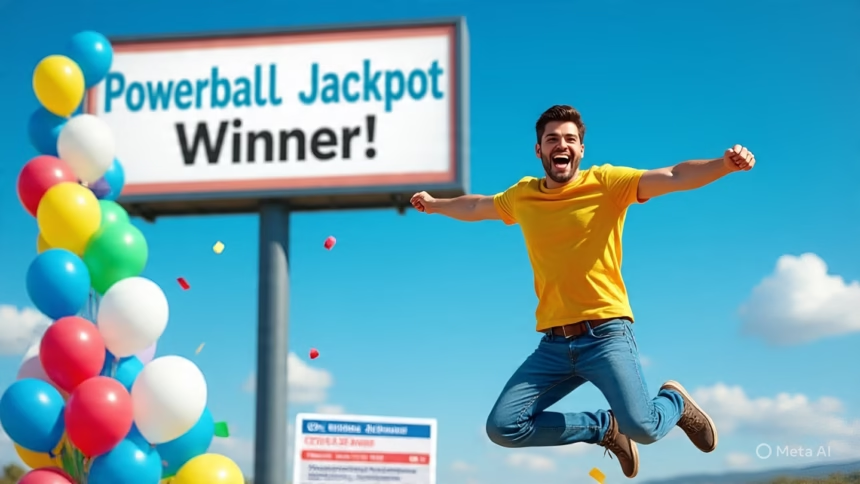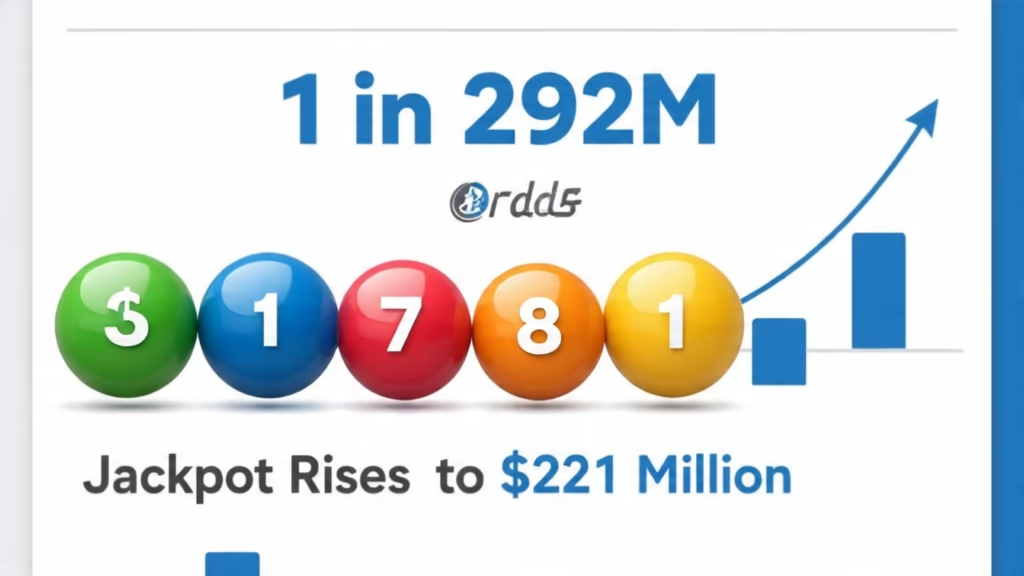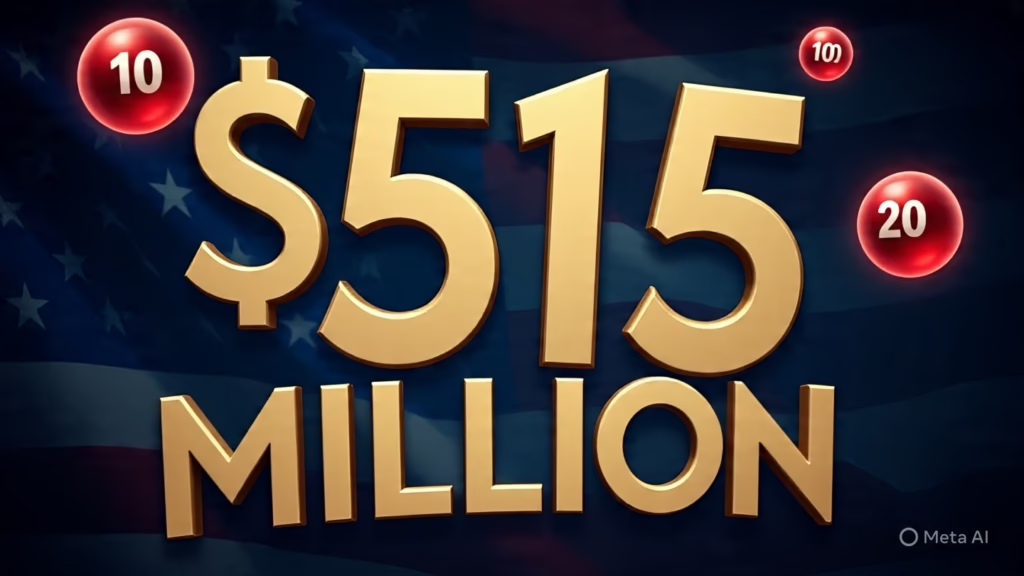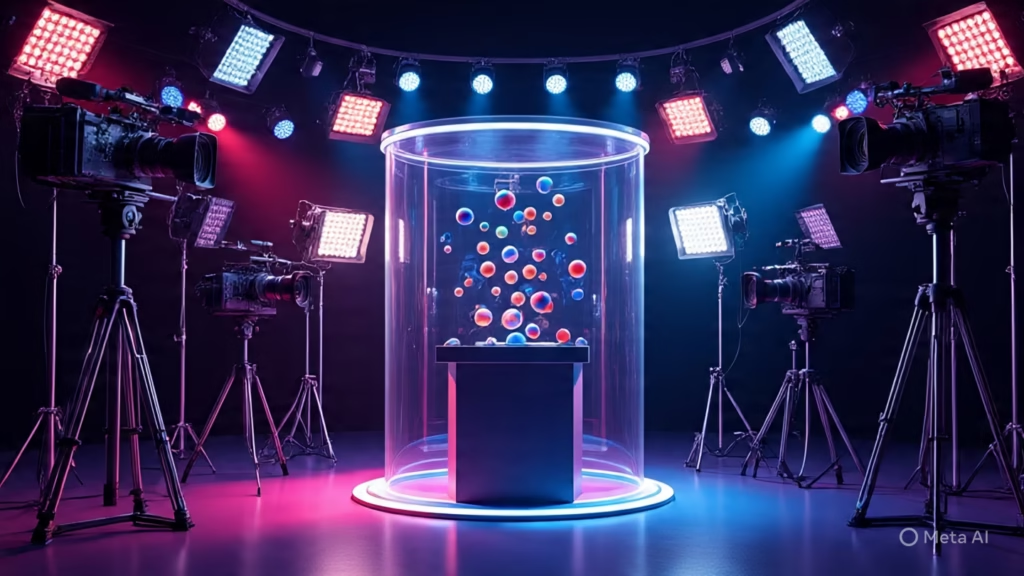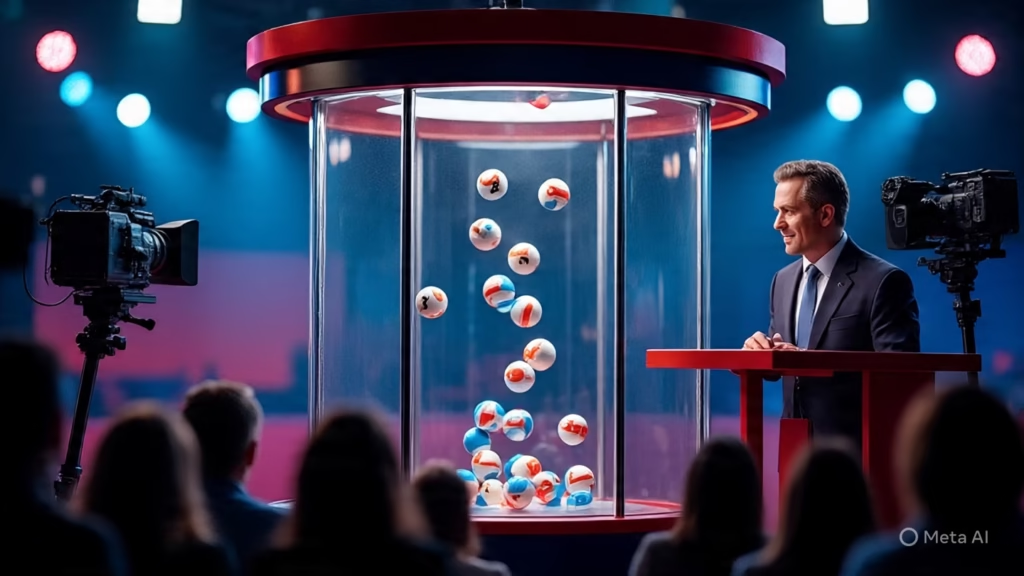Introduction: Powerball Jackpot
The Powerball lottery has become one of the most iconic games in the U.S., capturing attention worldwide with its record-breaking jackpots and life-changing wins. From the Powerball jackpot estimated at $515 million for Saturday’s drawing to famous victories like the Beaverton man who won $328.5 million Powerball jackpot, this game fuels dreams of instant wealth. Yet, beyond the thrill, players often ask questions about how it works, the odds, and why jackpots keep rolling over. In this detailed Powerball jackpot analysis, we’ll break down everything—from playing tips and payout structures to jackpot trends and claiming winnings—so you understand exactly how America’s favorite lottery operates.
1. What are the different payouts for Powerball?
Powerball offers nine prize tiers, ranging from $4 for matching only the Powerball to the massive Powerball Jackpot for matching all six numbers. If you match all five white balls but miss the Powerball, you win $1 million (or $2M with Power Play). Mid-tier prizes include $50,000 for matching 4 white balls plus the Powerball. Lower prizes range from $4 to $100, depending on your match. This structured payout ensures even if you don’t hit the jackpot, there’s always a chance to win smaller rewards. The appeal of winning anything from $4 to multimillion-dollar jackpots keeps millions buying tickets every draw.
2. How much is the average amount won in a lottery jackpot?
On average, Powerball jackpots range from $300M–$600M due to continuous rollovers when no one wins. For example, recent games saw the Powerball jackpot rise to $221 million after several drawings without winners. In rare cases, jackpots skyrocket into the billions. However, after selecting the cash option and paying taxes, winners usually take home around 40–50% of the advertised amount. Still, even a reduced payout often equals hundreds of millions, life-changing for any winner. For instance, the Beaverton man who won $328.5 million Powerball jackpot still netted an incredible amount post-tax.
3. How often are Powerball jackpots won?
The Powerball jackpot is typically won only a handful of times per year, usually 5–7 times annually. This low frequency is due to the staggering odds of 1 in 292 million. When no one wins for weeks or months, jackpots grow exponentially, like the Powerball jackpot estimated at $515 million for Saturday’s drawing. These rollovers generate national excitement, leading to spikes in ticket sales. Long dry spells also result in huge headlines when someone finally wins. So while wins aren’t common, when they do happen, they’re monumental events that capture worldwide attention.
4. Why does the Powerball jackpot need to be estimated?
The Powerball jackpot is estimated because final ticket sales continue until right before the drawing closes. Since millions of tickets are sold in the final hours, lottery officials must project the jackpot size based on sales trends, annuity values, and interest rates. For example, announcements often read like, “Powerball jackpot estimated at $515 million,” but the final amount may increase if last-minute sales are higher than expected. This estimation keeps players informed while allowing flexibility for fluctuating sales figures right up to the draw deadline.
5. Can you explain how to play Powerball?
Playing Powerball is simple: each $2 ticket lets you pick five numbers (1–69) plus one red Powerball (1–26). You can also add the Power Play option for $1 more, which multiplies non-jackpot prizes. Drawings happen three times weekly—Monday, Wednesday, and Saturday. Match all six numbers to win the Powerball jackpot today. Lesser matches still earn fixed prizes. The game’s straightforward format and potential for astronomical jackpots have cemented it as America’s most iconic lottery.
6. Is PowerPlay in Powerball worth it?
For just $1 extra per ticket, Power Play significantly boosts non-jackpot prizes. For example, a $50,000 prize can grow to $250,000 if a 5X multiplier is drawn. When jackpots are small, a rare 10X multiplier is possible. Although it doesn’t affect the Powerball jackpot, it’s highly beneficial if you hit mid-level prizes. For many players, adding Power Play is worth it, especially during streaks when the jackpot remains unclaimed but smaller prizes hit frequently.
7. Is it true that the Powerball can be won?
Yes, despite the astronomical odds, the Powerball jackpot is won multiple times yearly. Success stories like the Beaverton man winning $328.5 million Powerball jackpot prove that while unlikely, it is absolutely possible. However, long streaks without winners, such as the Powerball drawing for January 29th results in no jackpot winners, are common and contribute to jackpots ballooning to historic highs. These rare wins keep players motivated, fueling both dreams and ticket sales.
8. What happens if I get the Powerball number?
If you only match the red Powerball number, you win $4. Adding Power Play can boost it to $8, $12, or even $40 with higher multipliers. Though small, this prize offsets the ticket cost and encourages continued play. For many, hitting even this minor win keeps the excitement alive while dreaming of the Powerball jackpot in future draws.
9. What does Powerball 3X mean?
“Powerball 3X” refers to the Power Play multiplier drawn for that specific game. If you win a non-jackpot prize and the multiplier is 3X, your prize is tripled. For instance, a $50 win becomes $150. While it doesn’t impact the jackpot analysis Powerball, it significantly enhances lower-tier wins. These multipliers keep mid-level prizes exciting even during rollovers.
10. What happens when you win the Powerball jackpot?
Winning the Powerball jackpot gives you two choices: a lump sum cash payout or an annuity spread over 30 years. Most winners pick the lump sum despite it being smaller (after taxes) because it provides immediate access. For example, if you win a $500M jackpot, the cash option might be around $250M before taxes. Winners must also plan for state and federal taxes, which can take a large cut of the prize.
11. How to win the Powerball lottery jackpot?
There’s no guaranteed method to win. The only way to hit the Powerball jackpot is by matching all five white balls and the red Powerball. Some players use “quick picks” while others choose personal numbers or patterns. While these don’t improve odds mathematically, they add personal meaning. Playing consistently during big rollovers like the Powerball jackpot February 1, 2025 may increase your chances over time, though luck remains the primary factor.
12. What are the odds of winning the Powerball jackpot?
Your odds of winning the Powerball jackpot are 1 in 292,201,338. These odds are derived from all possible combinations of numbers (69 white balls × 26 red balls). While daunting, this is why jackpots grow so quickly—fewer winners mean bigger rollovers. Despite the low probability, players still chase the dream, fueling excitement whenever the American Powerball jackpot climbs into the hundreds of millions.
13. What are the winning Powerball lottery numbers?
The winning Powerball lottery numbers are drawn live three times a week—Monday, Wednesday, and Saturday. Each drawing selects five white balls (1–69) and one red Powerball (1–26). For example, in the recent Powerball drawing for January 29th results in no jackpot winners, many players matched smaller prizes, but no one hit the jackpot. The winning numbers are published instantly on official lottery websites and news outlets. While checking results is crucial, most players also follow jackpot trends and Powerball jackpot analysis USA mega news for updates.
14. What happens if you have the Powerball number only?
If you only match the red Powerball number and no white balls, you win $4 (or more if you selected Power Play). This is the lowest prize tier but is surprisingly common. Over time, hitting this minor prize often helps players offset ticket costs while chasing larger rewards. While it won’t make you rich, this “break-even” prize keeps players hopeful for future drawings when the Powerball jackpot rises to $221 million or higher.
15. What is Powerball lottery?
The Powerball lottery is a nationwide game played in 45 U.S. states, Washington D.C., Puerto Rico, and the U.S. Virgin Islands. Famous for its billion-dollar jackpots, it offers a simple play format: match five white balls and the red Powerball to win the jackpot. It’s part of the lottery Mega Millions Powerball jackpot craze in America, driving enormous ticket sales whenever jackpots roll over. With its history of record-breaking payouts and life-changing wins, Powerball remains the quintessential U.S. lottery game.
16. In American lotteries, why do you never get the full jackpot?
When you win the American Powerball jackpot, you won’t receive the full advertised amount if you pick the lump sum. The jackpot figure represents the annuity option, spread over 30 years. Choosing cash means you receive a discounted present value upfront, often 40–50% less. Taxes further reduce your payout, varying by state. For example, in a jackpot analysis Powerball, a $500M jackpot might net you around $250M after cash reduction and taxes. While it sounds like a steep cut, even after deductions, the prize remains life-changing.
17. How does the Powerball lottery work?
The Powerball lottery operates on a simple draw system: select five numbers from 1–69 and one Powerball from 1–26. Three weekly draws determine winners. If no one wins the jackpot, it rolls over, increasing in size—like when the Powerball jackpot February 1, 2025 grew from $200M to $350M in just a week. This rollover mechanism is what builds excitement and leads to record-breaking jackpots. Additionally, smaller prizes make it appealing even for those not hitting the top tier.
18. Do you prefer to play Powerball more than Mega Millions?
Many players favor Powerball over Mega Millions because of its slightly better secondary prize structure and more frequent drawings. For instance, Powerball jackpot today updates generate huge media buzz, drawing more participation than Mega Millions at times. Others switch between the two games depending on which jackpot is higher. Historically, Mega Millions has had slightly larger jackpots, but Powerball offers consistency and wider state participation, making it more accessible in many regions.
19. What is PowerPlay for Powerball?
PowerPlay is an optional add-on for $1 that multiplies all non-jackpot prizes by 2X–10X. For example, a $50,000 win can become $250,000 with a 5X multiplier. When the jackpot is under $150M, even the rare 10X multiplier becomes available. Though it doesn’t affect the Powerball jackpot, PowerPlay dramatically enhances mid-tier prizes, making it a smart choice for many players, especially during stretches when no jackpot winners emerge, like the Powerball drawing for January 29th results in no jackpot winners.
20. How do I claim the winning jackpot money?
To claim a Powerball jackpot, winners must first sign their ticket and visit their state’s lottery office. Large jackpots require in-person claims and extensive identity verification. Depending on state rules, you typically have 90–365 days to claim. For massive wins like the Beaverton man winning $328.5 million Powerball jackpot, winners usually hire financial and legal advisors to manage taxes, investments, and publicity. States often provide guidance to help winners navigate the claim process safely.
21. If you win the lottery, how do you cash in your winnings?
Small prizes under $600 can usually be redeemed at authorized retailers. Larger wins, especially a Powerball jackpot, require claims through state lottery headquarters. For massive payouts, winners choose between a lump sum or annuity. Financial planning becomes crucial after cashing in, as taxes and legal considerations can significantly impact net value. Many states offer privacy options to protect winners, especially after huge jackpots like the Powerball jackpot rises to $221 million.
22. What happens to the proceeds from Powerball ticket sales?
Revenue from Powerball ticket sales is split between prize payouts, administrative costs, and state programs. Each participating state directs its share toward public services such as education, infrastructure, or community funding. For example, part of every ticket sold during a record Powerball jackpot analysis benefits schools in that state. This means even non-winning tickets indirectly support local causes, giving the game a dual appeal: life-changing jackpots and community funding.
23. Why do most jackpot winners select the lump sum payments?
Most winners of the Powerball jackpot choose lump sum because it provides immediate control over the funds. While the annuity guarantees 30 years of payments, winners often prefer investing or managing their wealth independently. Lump sum also avoids concerns about future tax changes or the lottery agency’s stability. For instance, in a jackpot analysis Powerball, the Beaverton winner opted for a $328.5M cash payout over the annuity. Immediate access often outweighs the slow, steady annuity option.
24. If I have 2 identical lottery tickets and win, what do I get?
If you purchase two identical Powerball tickets and they win, you’ll receive double the prize, including for jackpots. So, if the Powerball jackpot today is $200M and both your tickets match all numbers, you’d claim $400M total. While rare, some players intentionally duplicate tickets to double non-jackpot wins as part of strategic plays, especially during massive rollovers like Powerball jackpot February 1, 2025.
25. How to get Powerball fixed winning numbers?
There’s no legitimate way to get fixed or guaranteed winning numbers for Powerball. The draw uses secure, randomized machines to ensure fairness. While some players rely on number patterns, birthdays, or statistical analyses (like Powerball jackpot analysis USA mega), these don’t improve odds mathematically. The only genuine method is to play consistently and responsibly. Any “guaranteed number” schemes are scams—Powerball is purely a game of chance.
26. What is the world’s biggest lottery jackpot ever?
The largest ever Powerball jackpot hit $2.04 billion in November 2022, making it the biggest prize in U.S. lottery history. Winners who claim such record-breaking jackpots often make global headlines, further fueling public interest. This historic win showcased how rollovers, like the Powerball jackpot rises to $221 million and beyond, snowball over weeks or months without winners. Such astronomical prizes are why millions flock to buy tickets during jackpot surges.
27. What are the odds of me winning the lottery?
The odds of winning any lottery jackpot, including Powerball, are incredibly slim. For Powerball, it’s 1 in 292M, while Mega Millions is 1 in 302M. However, smaller prizes have better odds—matching just the Powerball number is 1 in 38. While jackpot analysis Powerball confirms low probabilities, steady participation keeps dreams alive. Players balance this reality with the understanding that even small wins or secondary prizes can be exciting.
28. Is playing Powerball pointless? Aren’t the odds astronomical?
While the odds of hitting the Powerball jackpot are indeed astronomical, the appeal lies in the life-changing potential. Buying a ticket is less about probability and more about dreaming of what could be. Many view it as affordable entertainment rather than an investment strategy. Plus, smaller wins and PowerPlay multipliers keep things interesting between jackpot surges, like when the Powerball jackpot estimated at $515 million captures national attention.
29. Which day is better to play Powerball?
There’s no statistically “better” day since every draw is independent. However, sales spike before Saturday draws because they precede weekends, often resulting in larger jackpots. For example, the Powerball jackpot estimated at $515 million for Saturday’s drawing attracted record ticket sales. Playing any draw offers equal odds, but weekend excitement often heightens participation, boosting the thrill of chasing that American Powerball jackpot.
30. How are the odds of a Powerball jackpot 1 in 300 million?
The odds of winning the Powerball jackpot (officially 1 in 292.2 million) come from the math of combinations. Players must match 5 numbers out of 69 and then the red Powerball from 1–26. Multiplying these probabilities creates those staggering odds. This is why jackpot rollovers occur often, like when the Powerball jackpot February 1, 2025 surged due to multiple drawings without winners. These odds are designed to create massive prizes, attracting attention and boosting ticket sales nationwide.
31. How many chances are there of winning the lottery?
Every ticket you purchase gives you one chance in the lottery. For Powerball, you have 1 in 292.2M odds for the jackpot but better odds for lower tiers, such as 1 in 11.7M for $1M. Buying more tickets technically improves your chances slightly, but even 10 tickets only change odds to 10 in 292M. As seen during the Powerball drawing for January 29th results in no jackpot winners, it’s proof of how tough hitting the jackpot can be despite millions of tickets sold.
32. How much is the average amount won in a lottery jackpot?
The average Powerball jackpot usually ranges from $100M–$500M before being hit, though rollovers can push it into billions. For instance, a jackpot analysis Powerball over the past decade shows that prizes often grow quickly over 10–15 drawings. Smaller state wins, like the Wyoming Powerball jackpot, tend to hover in the $40M–$100M range before reset. These figures highlight how Powerball offers the largest jackpots in American lottery history.
33. What does the lotto scratch-off overall odds ratio mean?
Scratch-off tickets display an “overall odds” figure (e.g., 1 in 4), which means on average, one in every four tickets pays a prize. This does not guarantee you’ll win if you buy four tickets—it’s based on the entire print run. Unlike chasing a Powerball jackpot today, scratch-offs offer instant wins but far smaller prizes. Players use these odds to gauge risk, though even in scratch games, big wins are rare compared to lower prize payouts.
34. What is the probability of winning the lottery?
The probability of winning any lottery jackpot is minuscule. For Powerball, it’s 1 in 292.2M, while Mega Millions is 1 in 302.5M. Despite these odds, players are drawn to huge rollovers like the Powerball jackpot estimated at $515 million for Saturday’s drawing, which drive nationwide ticket sales. While probabilities stay fixed regardless of how many people play, larger pools of participants increase the excitement and likelihood of seeing headlines about record jackpots being hit.
Summary
In summary, the Powerball jackpot is both a game of chance and a source of nationwide excitement. Its odds—1 in 292 million—may be astronomical, but rollovers and massive prize growth make it irresistible to millions. Whether it’s understanding why the Powerball jackpot rises to $221 million after no winners, learning how to claim a prize, or exploring how proceeds support state programs, this guide covers it all. While hitting the jackpot is rare, smart play, knowledge of rules, and awareness of payout options can help maximize your experience. Ultimately, Powerball isn’t just about the win—it’s about chasing the dream that one lucky ticket could change everything.
